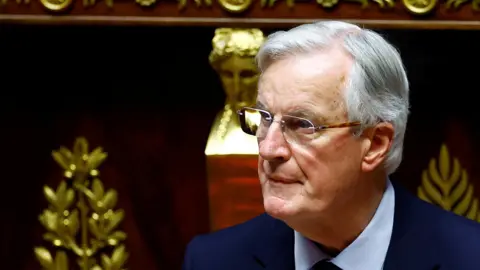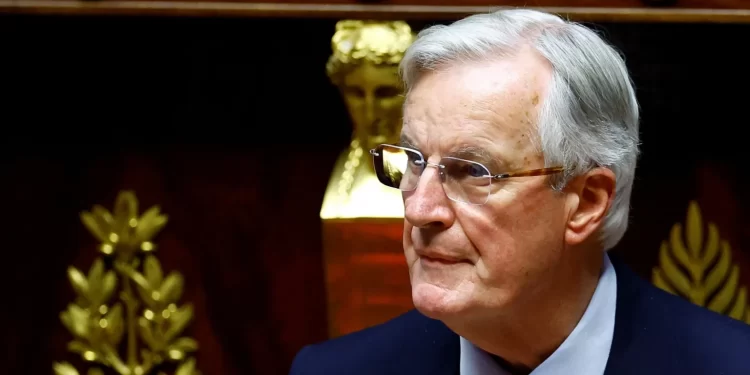 Reuters
ReutersFrench Prime Minister Michel Barnier faces a vote of no confidence in his minority government after using special powers to push through a social security budget bill without a vote by MPs.
The government is unlikely to survive the vote, which was triggered this afternoon by the radical left France Unbowed (LFI) opposition party and Marine le Pen’s far-right National Rally (RN).
It could take place as early as Wednesday.
Despite last-minute concessions, Barnier clearly did not think he would be able to get his budget bill over the line.
The New Popular Front, an alliance of several left-wing parties, came out top against Macron’s supporters and the far right following early elections in July.
The alliance was left furious by Macron’s decision to veer to the centre right by picking Barnier as his new prime minister, and promised to vote against the government.
This has meant that Barnier has until now had to rely on the RN for his government’s survival.
The budget bill sought to rein in France’s spiralling deficit through €60bn (£49bn) in tax rises and spending cuts.
Barnier had made concessions to critics including scrapping a previously planned hike in electricity tax, as well as plans for a less generous prescription drug reimbursement policy from next year.
He used article 49.3 of the French constitution, which allows the text of a bill to be passed without a vote, to push through his 2025 budget after the RN joined the left in opposing it.
“I don’t think French people will forgive us for choosing party interests over the future of the country,” Barnier told MPs on Tuesday as he explained the reasons for his decision. “Now, everybody will need to assume their own responsibility as I have assumed mine.”
 EPA-EFE/REX/Shutterstock
EPA-EFE/REX/ShutterstockMarine le Pen explained the RN position.
“Barnier didn’t listen to the 11 million voters of the RN… He said everyone should assume their own responsibility, and that’s what we will do,” she said.
Barnier was invited to form a government by President Emmanuel Macron in September.
If Barnier doesn’t survive Wednesday’s vote, he will remain in place as a caretaker prime minister until Macron announces a new government.
That could be a new majority government – unlikely given the splintering of the French parliament – or a technocratic government, to steer the country until new elections can be held next summer.
Several parties are also clamouring for new presidential elections. As it stands, Macron is due to stay in post until 2027.






